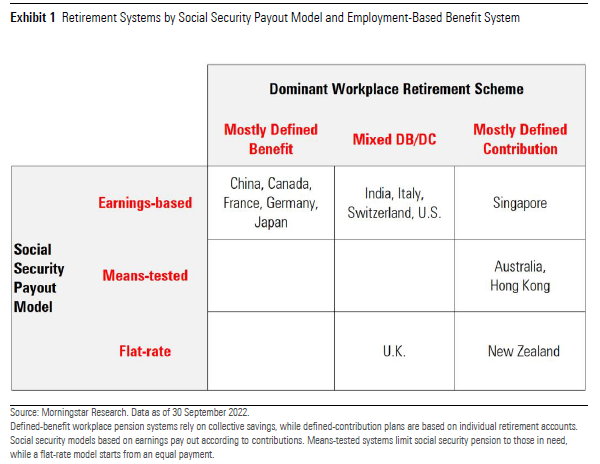
Morningstar’s inaugural Global Investor Portfolio Study, authored by Morningstar’s Manager Research team, builds on the success of the Global Investor Experience Study and seeks to better understand how individual investors construct portfolios in markets around the world.
The report covers 14 markets, including Canada, and finds that with wide divergence across investor portfolios based on their domicile, there is no such thing as an average investor. Factors influencing investor choices include local market practices and investment culture, retirement safety net, and regulatory landscape, all of which often drive investors’ financial needs and their appetite to take risk in portfolios, the authors – Wing Chan, Matias Möttöla, and Grant Kennaway find. Other factors include the availability of financial products and how they are distributed, how investors approach portfolio construction, the magnitude of home bias, and the overall asset allocation of portfolios.

What’s Going on with Canadian Investor Portfolios?
While allocation funds dominate the fund investing landscape in Canada, alternative investments such as cryptocurrencies are also garnering investor interest, Morningstar Canada’s Director of Investment Research Ian Tam and Danielle LeClair Morningstar Canada’s Director of Manager Research find.
For mass-affluent investors in Canada, locally domiciled funds are the most popular investment structure, since although Canadians can invest in foreign-domiciled mutual funds and investment products, tax laws discourage them from doing so, they say.
“Distribution networks in Canada are dominated by a small number of vertically integrated financial institutions where investors frequently leverage the availability of financial advice. The cost, however, is high,” they write, adding that most assets reside in commission-based share classes, where the ongoing advice and distribution fees are bundled into the commission paid to advisors.
LeClair and Tam note that outside of balanced products, Canadians favour equity products over fixed-income and alternatives products. Home biases are most notable in their fixed-income allocations, where the average domestic fixed-income exposure is over 50%. In equity allocations, Canadian stocks represent over 30% of portfolios, which is much higher than the country’s weight in the world equity market.
What About Canadian Investors’ Retirements?
Despite generally favourable social and health retirement services provided by the central government, pension benefits as a percentage of gross domestic product are below average, the two find.
“The Canadian Pension Plan did increase its income replacement targets from one-fourth of a retiree’s average work earnings to one-third of their average work earnings (up to a maximum annual limit). This change enhanced the maximum CPP retirement pension by up to 50% for those who make contributions for 40 years, but Canadians continue to consider the cost of retirement savings prohibitively expensive. Defined-benefit pension plans represent most of the pension assets in Canada as they remain the dominant pension plan structure for government-backed entities. However, defined-contribution pension plans are growing fast, with limited new pension plans offering defined benefits. Individual retirement accounts make up a significant portion of retirement assets as a result, a trend we expect to remain prominent,” LeClair and Tam say.
Canadian Investors are Interested in Cryptocurrencies
Cryptocurrencies have crept into portfolios across the globe but continue to be used by a minority of investors, with a heavy concentration among younger cohorts. Statistics and surveys on their use are of varied quality, and ownership share estimates can vary manyfold for a single market, as cryptocurrency holdings are typically estimates based on surveys and not covered by official monetary statistics, the report finds.
“The most crypto-friendly investors in our sample seem to be in Singapore, which hosts several prominent crypto companies, and Hong Kong. Polls seem to indicate that Canadians are more likely to be invested in crypto than American, Australian, or British households,” the authors write.
LeClair and Tam note that Canadians are trendsetters in cryptocurrency, where related funds are regulated under securities laws and readily available via multiple platforms. In 2021, the world’s first cryptocurrency ETF, the Purpose Bitcoin ETF, was launched in Canada. The report notes that over 14% of assets are allocated to the space—a high relative number globally.
You can access the entire report here.








.jpg)











